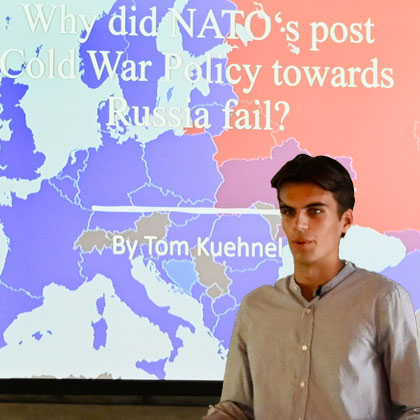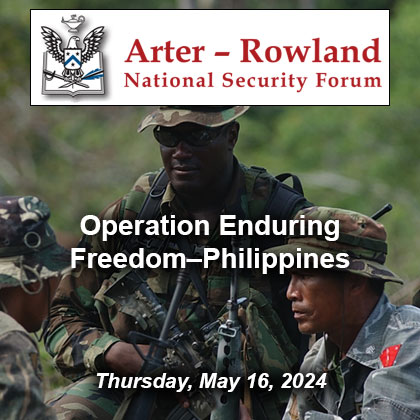PKSOI releases mass atrocity prevention and response handbook
In March, the U.S. Army War College’s Peacekeeping and Stability Operations Institute (PKSOI) released its policy planning handbook on mass atrocity prevention and response operations. The Mass Atrocity Prevention and Response Operations (MAPRO): A Policy Planning Handbook was developed to aid in interagency policy making decisions dealing with mass atrocity and genocide situations.
PKSOI’s new MAPRO handbook defines mass atrocities, describes how genocides and mass atrocities develop, and discusses governmental challenges to identifying situations involving genocide and mass atrocities. The handbook suggests six guidelines for developing MAPRO policies and plans: prevention is preferable to response; the U.S. has a wide range of tools that should be considered and integrated; policy makers should understand the complete context of the situation; quick action is important in addressing concerns and seizing opportunities; multilateral efforts are preferred; and planning for transitions and endstates should begin early. The handbook offers suggestions to facilitate routine interagency cooperation, and also suggests a policy and planning framework for genocide and mass atrocity situations.
For more information on the MAPRO policy planning handbook, please follow the link below.
MAPRO: Mass Atrocity Prevention and Response Operations, A Policy Planning Handbook, PKSOI, Army War College
Simons Center Update: The Simons Center published a special edition InterAgency Journal on the subject of preventing mass atrocities and genocide in April 2012. For more information about this edition, click here.
READ THE LATEST UPDATES FROM THE SIMONS CENTER
"*" indicates required fields


